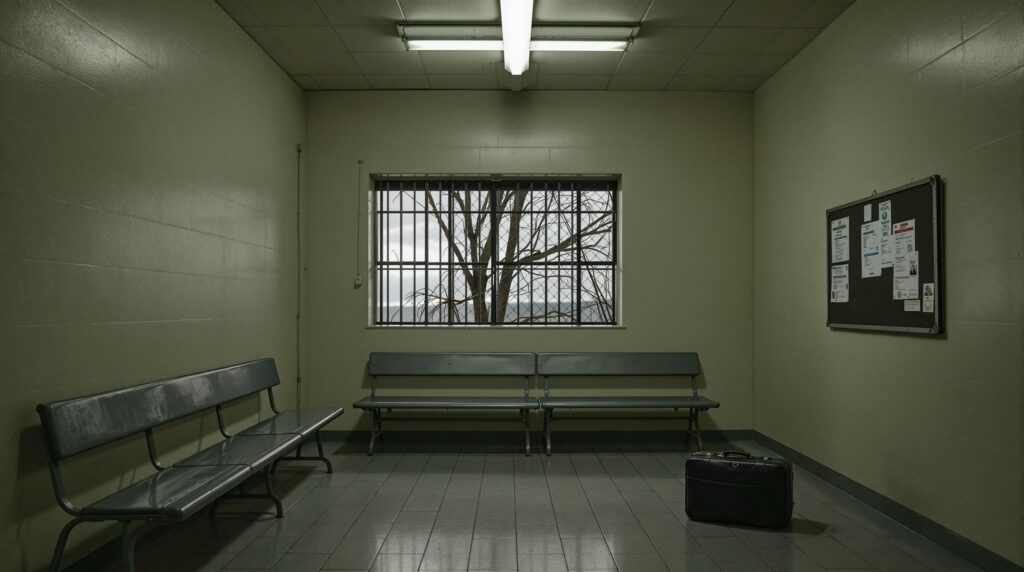In yet another challenging chapter of America’s complex history with immigration, a recent ruling by the 9th U.S. Circuit Court of Appeals has endorsed former President Trump’s controversial halt on refugee resettlement, reigniting heated arguments about who America welcomes—and how. Despite progressive advocates’ heartfelt efforts to protect vulnerable groups, this court decision underscores how deeply entrenched conservative immigration policies continue to disrupt lives.
A Questionable Rationale Behind Refugee Pauses
When Donald Trump first introduced the temporary freeze immediately after taking office, his administration justified it by stating that such a measure was necessary to ensure refugees would be able to “appropriately assimilate” while also safeguarding taxpayer resources. But how does this rationale really hold up under scrutiny? Advocates for refugee communities consistently point out the diversity, resilience, and profound contribution refugees offer to American society. By painting assimilation as a looming issue, Trump’s narrative implicitly frames refugees as a burden rather than acknowledging their genuine capabilities and profound motivations for seeking safety and stability.
Critical voices argue that such policies are less about genuine concern for assimilation or responsible governance, and more reflective of a troubling hostility toward marginalized groups. History provides clear insights—America has long benefited from the compassion and openness shown toward refugees, from Eastern European Jews fleeing persecution in the early 20th century, to Vietnamese and Cambodian refugees escaping warfare. These groups have significantly enriched American culture, economically and socially, showcasing refugee resettlement as both morally right and economically fruitful.
Immediate Impacts, Long-Term Consequences
The immediate damage caused by Trump’s policy can most clearly be seen in places like Maine, where over 260 legal refugees had their life’s journey interrupted by an executive order. For these vulnerable families, already coping with the traumas of displacement, the abrupt cessation of resettlement assistance magnified hardship, anxiety, and suffering. Such policies undeniably fracture families, interrupt lives, and undermine America’s international humanitarian commitments.
Financially, too, it wreaked havoc. Agencies assisting migrants were suddenly informed they would no longer be reimbursed for critical—indeed essential—support such as housing and food during their initial few months of acclimation. This unanticipated strain forced many humanitarian operations that depend upon federal funding for assisting refugees into existential uncertainty. The rippling repercussions underscore a fundamental moral question about America’s collective responsibility: How do we reconcile fiscal conservatism with our core values of compassion and justice?
“To suggest that pausing refugee admissions serves meticulous planning ignores the human cost—innocent lives caught in political crosshairs.”
Courtroom Struggles for a Fair Future
When a Seattle-based federal judge originally responded to Trump’s freeze in February by mandating an immediate restoration of funding and continuation of refugee entry processes, the decision was a significant triumph for refugee advocates and preservation of humanitarian values. It validated not only the rights of thousands of refugees eager for stability and opportunity, but also recognized the dedicated groups tirelessly serving them—groups who rely heavily on these funds for their very survival.
Now, with the appeals court siding temporarily with the Trump administration once again and allowing the halt during ongoing litigation, the fight for a humane immigration policy faces renewed challenges. The contentious legal battle continues to illuminate broader ideological tensions—namely, the conservative insistence on rigid border control versus progressive demands for an empathetic, equitable system, grounded in human rights.
It remains puzzling and alarming why such conservative perspectives often overlook extensive data illustrating refugees’ consistently positive contributions in economic development, community revitalization, and cultural enrichment. Furthermore, national security experts repeatedly affirm that stringent vetting processes already robustly safeguard national security—a key conservative argument that ceases to hold water under scrutiny.
This ongoing policy seesaw ultimately leaves vulnerable families caught in unforgiving legal limbo, overshadowed and obscured by political rhetoric and ideological battles. Meanwhile, the Biden administration has already expanded refugee admissions to 100,000 for fiscal year 2024, indicating a pivot toward more humanitarian-oriented, inclusive immigration policies. Yet, the consequences of Trump’s restrictive policies and the current judicial indecision remain deeply felt.
As progressives continue to push for more equitable treatment for refugees, ongoing litigation in the courts further reveals the underlying fractures in this nation’s debates over immigration, identity, and humanitarian responsibility. For now, the uncertain fate of thousands hangs in balance, tied inexorably to a divisive political clash over America’s soul and future.

